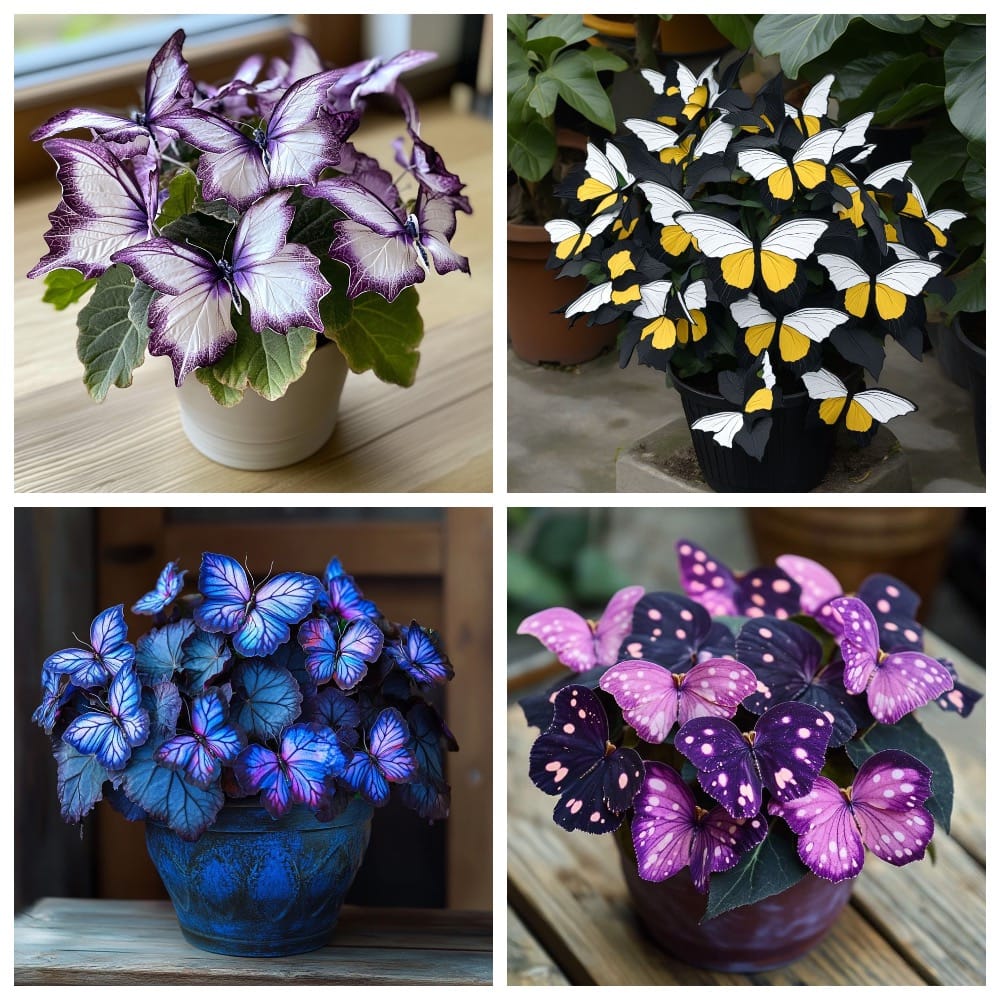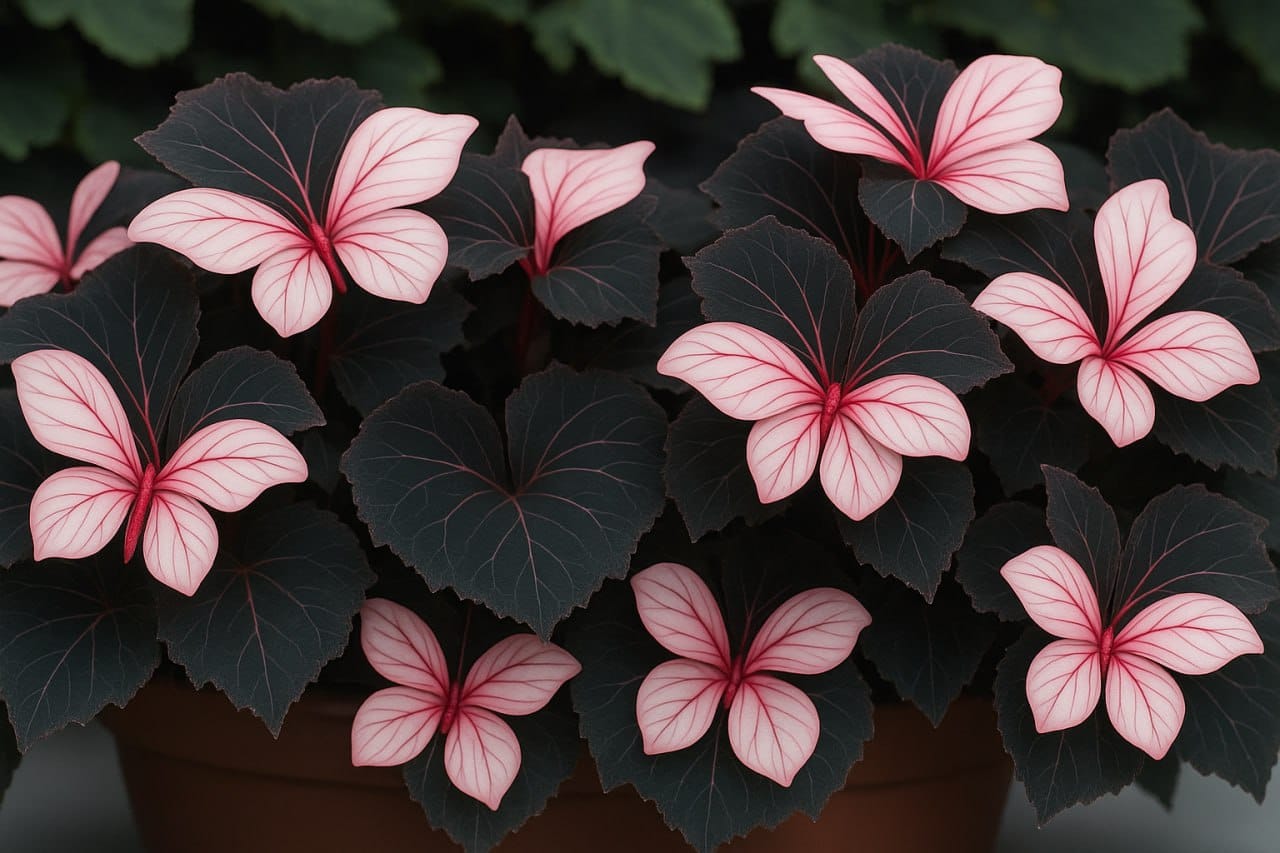Pictures of an unusual plant, whose flowers look like butterflies of different colors, are popular on the Internet. It is claimed that this is a special variety of begonia. We checked whether such a flower exists.
Posts from photographs Begonia varieties “Moonlight Butterfly” (or Moonlight Butterfly) are popular in publics And groups V Facebook* And "VKontakte"where they dial thousands likes and hundreds reposts. These images are also found in other sources: from online magazines to home improvement And gardening, where detailed illustrated articles are devoted to an unusual flower, up to sites with online puzzles. Many users admire this supposed miracle of nature, but others express doubts in the authenticity of the photographs.
Begonia - genus perennial flowering plants from the family Begoniaceae. These are herbaceous plants or shrubs with succulent stems, large, often asymmetrical leaves and flowers of different shades. Begonias are native to the humid subtropical and tropical regions of South and Central America, Africa and South Asia. They occur naturally in the understory of tropical forests, often growing in moist, well-drained soils, sometimes on tree bark or in damp rock crevices. Cultivate begonias started in Europe at the end of the 18th century, when the botanist Charles Plumier brought the first specimens from the West Indies. He also named the genus in honor of Michel Begon, the governor of the French Caribbean colonies. Active selection and hybridization of begonias began in the 19th century, and by 1847, 70–80 varieties were already grown in European greenhouses. Over time, begonias became available to the general public and became one of the most popular indoor plants.
The genus Begonia includes more than 2,000 species, making it one of the largest in terms of this indicator. However, in catalog There is no Global Biodiversity Information Center, which collects and systematizes data on all species of all organisms on the planet. Not mentioned it is also in the Catalog of Life, which is maintained by hundreds of leading taxonomists from around the world.
In total, "Verified" found 17 different images of the "Moon Butterfly" begonia. And although each of them individually may seem genuine, when studying almost two dozen pictures, doubts begin to creep in. So, in the photographs the flowers have different colors: black and white, white and pink, blue, etc. Different plants have significantly different leaf shapes, which is not typical for representatives of the same species. Usually in such cases, botanists talk about different varieties: for example, a variety of the popular indoor plant spathiphyllum with large leaves is called Cannifolium, and with more small — Blandum. There are no publicly available photographs of either young, just flowering plants or heavily overgrown bushes. Finally, all the presented begonias are amazingly well-groomed - there are no fading flowers, falling leaves or unopened buds.

All this suggests that the images were created using AI. This hypothesis is confirmed by the AI detector from the Hive company - he estimated the probability that each of the 17 pictures was generated by neural networks from 96.7% to 99.9%. Analysis of images using similar services for recognizing generative content led to the same conclusions.
In the Russian-language segment of the Internet, images of the “Moon Butterfly” begonia appeared no later than September 2024. September 8 community “Your time has come” on Facebook published a picture with a white and pink flower, the post received almost 8,000 likes and more than 1,000 reposts. Pictures of begonias of other colors appeared later - for example, a picture with a black and white plant became popular in December 2024, probably after publications in the “Flowers of the World, Wildlife” community on the same social network. However, Russian-speaking users cannot be considered the “discoverers” of the variety - there are publications in English with other generated images, dateable the end August 2024.
Thus, the Moon Butterfly begonia variety does not exist. All images supposedly depicting this flower were created by AI.
Cover image: Facebook
*Russian authorities consider Meta Platforms Inc., which owns the social networks Facebook and Instagram, an extremist organization, its activities in Russia are prohibited.
If you find a spelling or grammatical error, please let us know by highlighting the error text and clicking Ctrl+Enter.






